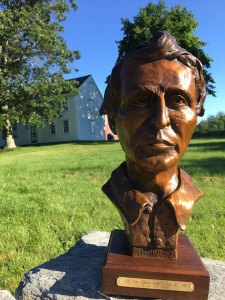Henry David Thoreau: A Man of Nature and Ideas
Henry David Thoreau was born on July 12, 1817, in Concord, Massachusetts in what we now call the Thoreau Farmhouse. He lived during a time when America was changing quickly. People were talking more about freedom, slavery, and how to live a meaningful life. Thoreau became known for his powerful ideas about nature, society, and personal responsibility.
Thoreau was many things: a writer, a philosopher, a scientist, a naturalist, and a social reformer. He was also part of the Transcendentalist movement, a group of thinkers who believed that people should listen to their inner voice and find truth in nature and the human spirit.
One of Thoreau’s most famous works is an essay called “Civil Disobedience.” In it, he argued that people should stand up against unfair laws and injustice, even if it means breaking the law. His ideas later influenced important leaders like Mahatma Gandhi in India and Dr. Martin Luther King Jr. in the United States.
Thoreau also loved the natural world. He believed that nature could teach us deep truths about life. He spent two years living simply in a small cabin by Walden Pond, where he wrote his book Walden. In it, he said, “We can never have enough of nature.”
Thoreau studied plants, animals, and the changing seasons. He kept detailed notes about what he saw and used science to understand the world around him. But he also believed that there was more to life than facts — that our hearts and spirits also need meaning and connection.
Thoreau died on May 6, 1862, but his writings are more popular today than ever before. His call to live simply, listen to your conscience, and care for the natural world continues to inspire people all over the world.
Vocabulary Notes
| Word | Definition (in simple terms) |
|---|---|
| Transcendentalist | A person who believes people find truth and meaning through nature and their own spirit, not just through rules or books. |
| Naturalist | Someone who studies nature, like animals, plants, and the environment. |
| Philosopher | A person who asks big questions about life, meaning, and how people should live. |
| Social reformer | Someone who works to make society fairer or better, especially by changing laws or traditions. |
| Civil Disobedience | The act of peacefully refusing to follow unfair laws to bring attention to injustice. |
| Conscience | A person’s inner sense of right and wrong. |
| Injustice | Something that is unfair or not right. |
| Walden Pond | A real pond in Massachusetts where Thoreau lived for two years and wrote about living simply. |
| Spiritual | Related to the soul, meaning, or deep feelings beyond the physical world. |
| Simplify | To make something easier, less complicated. |

